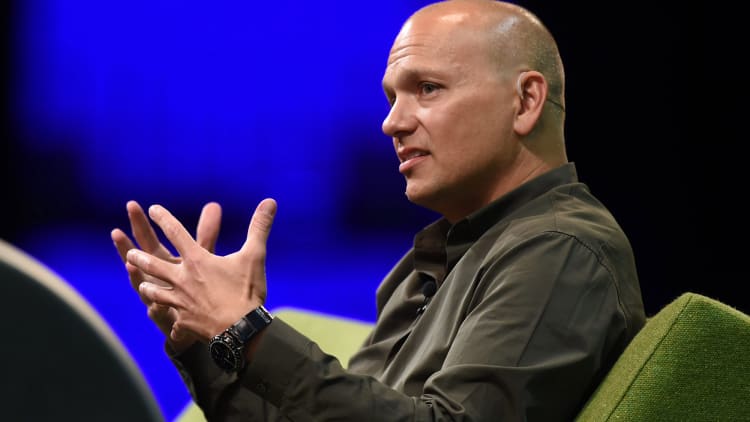
Consumer hardware guru Tony Fadell is doubling down on his call for tech companies to provide better tools to manage digital addiction.
"Apple is at the core of this, and so is Google," Fadell said to CNBC's "Squawk Alley" on Thursday. "They should be able to give us back a 'day in the life' of the user."
"You don't know that you're an addict until you cross the line," he added.
Fadell is a former executive of both Alphabet and Apple, and is credited as a co-creator of the Nest thermostat and the iPod. Fadell is also an alumnus of General Magic, a 1990s technology firm that launched several big tech executives to Silicon Valley stardom, including Android leader Andy Rubin.
Despite his leadership in consumer technology companies, Fadell has acknowledged that consumers and companies need to do more to address addiction to smartphones and social media. He's not alone: Investors Jana Partners and Roger McNamee and virtual reality engineer Jaron Lanier have expressed concern about addictive technology.
"It's a set of unintended consequences," Fadell said. "I just know that I think we need both a digital connection with each other as well as an analog connection with people..... This is actually really easy to build."
Tech companies may not be intentionally causing addiction, but Fadell said that at a platform level, companies should "do the right thing" for the users and provide tools to measure our digital health, not just physical health.
"We need to have the tools so that our families ...[can] maintain and monitor what's going on," Fadell said. "So, yes, I do think sometimes the phones should be put away."
While Fadell is outspoken on this topic, he said he still has an optimistic view of technology as a whole, noting he knows good people at Apple. Since leaving Nest, Fadell has been an advocate of the French tech scene, where he invests in start-ups through his firm, Future Shape.
"I see much more benefits than I see negatives," Fadell said. "Think about all the commerce — all the super powers — that individual users have now .... but there are bad actors."


